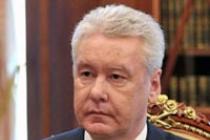UDC 657-057.86
ESSENTIAL-SPECIFIC ASPECTS OF ACCOUNTANT PROFESSIONALS
I. B. MANZHOSOVA,
Candidate of Economic Sciences, Associate Professor of the Department of Management Accounting E-mail: i. [email protected] ru Stavropol State Agrarian University
A. V. SHEYKO, accountant, Stavkons LLC E-mail: [email protected] en
The article considers the concept of a professiogram, its essence and main sections, a comparative description of the professiograms of an accountant and other related economic specialties is carried out.
Key words: professiogram, professiogram content, dominant types of activity, frequent interaction of the “nearby” type, enterprising personality type, managerial path of development, development of related professions.
Professiogram (from the Latin professio - specialty, gramma - record) - a document containing a description of the content and features of a particular profession (functions, duties, tasks, operations) and revealing the specifics of professional work, the requirements for a specialist (professional, business, personal qualities) . The appearance of the first professiograms and their use for the selection of personnel dates back to the beginning of the 20th century, when, after analyzing the content of the work and determining the corresponding requirements for workers, the specialists of the Ford automobile plants came to the conclusion that some professions are quite within the power of the disabled. Most often, professiograms are developed in large industrial organizations.
for mass professions, but recently large employment and recruitment agencies have been actively engaged in compiling them.
The main differences between the professiogram and job description are the lack of declarativeness, i.e. sections containing information about the rights and responsibilities of the employee, the presence of a description of working conditions at the workplace, a large amount of requirements for the employee. In the theory and practice of personnel management, a professiogram, along with tariff and qualification reference books, is characterized as a document that contributes to a better selection of workers in especially important professions.
The main characteristics of the concept of "professiogram" are the form (Fig. 1), type (Fig. 2), content (Fig. 3).
In accordance with the typology of professions, E. A. Klimova identifies five types of professiograms on the subject of labor.
The profession of an accountant belongs to the "Man - Sign" type, since it is associated with the processing of symbolic information: texts, numbers, formulas, tables, which require logical abilities, the ability to concentrate, developed attention and perseverance, the ability to operate with numbers.
professional team
Verbal description G - Video film 1 piece (Sign algorithm g Computer program
Rice. 1. Forms of professiogram
Let us consider in more detail the textual (symbolic) professiograms of related economic specialties: accountant, auditor and economist (Table 1).
The most important features of the profession from a psychological point of view, such as the name, the dominant way of thinking, the area of basic knowledge, the professional area, interpersonal interaction, the dominant interest, additional interest, working conditions, constitute the “profession card”. Os-
The main sections of the professiogram reveal the contents of the "profession card" and contain analytical material.
The dominant way of thinking is identified by grouping tasks, the solution of which is the easiest for a person (the most attractive everyday situations, hobbies for him).
All methods of solving professional problems can be divided into three large classes:
Application - application of existing knowledge with a well-defined and proven decision procedure;
Adaptation - adaptation of existing general knowledge to the conditions, context of a changing situation;
Production - direct execution of actions (manual labor).
Ways of thinking are classified into similar groups and subgroups:
Application - a way to resolve a problem situation is clearly defined, there is a clear internal model of the ideal;
Adaptation - choosing the best option from several ways to solve a problem situation;
Production - the idea of completing a task is stored in motor memory
professiograms
Rice. 2. Types of professiogram
Profession presentation
Type and class of profession
Requirements for knowledge, skills of a specialist
Requirements for the individual characteristics of a specialist
Working conditions
Medical contraindications
Basic education
->1 Profession paths
Fields of application of the profession
prospects career development
General information. Prevalence. Type of economic activity. Prospects for the development of the profession
Type is the object of labor.
Class - the nature of the work., the degree of complexity and qualifications
Characteristics of the labor process. Types of basic tools. Types of professional difficulties. Forms of labor organization. The nature of social ties. Workplace and work posture
Knowledge, skills, abilities. General level of intelligence. The degree of mastery of the word, number. Spatial orientation-Motor coordination.
Propensity for scientific and technical activities. Specific abilities
Perception, thinking, attention, memory. Emotional qualities. Business qualities
microclimatic conditions. Noise and vibration. Lighting and temperature. Mode of work and rest.
Traumatism and occupational diseases. Work indoors or outdoors. Monotony and pace of work. Medical indications. Benefits and compensation
Types educational institutions. Forms of preparation. Duration of training. Admission conditions. Qualification Level
Comparative characteristics professiograms
Table 1
related economic specialties
Accountant Auditor Economist
Professional area Economics
Dominant way of thinking Application - regulation Application - regulation Adaptation - coordination
Area of basic knowledge, high level (theoretical) Financial management, accounting Politics, economics
Area of professional knowledge, intermediate level (practical use of knowledge) Mathematics and statistics
Interpersonal interactions Frequent near by Rare Frequent near by
Continuation of Table 1
Characteristic Name of the profession
professiograms Accountant Auditor Economist
Dominant interest Conventional Research Conventional
Additional interest Entrepreneurial Conventional Social
Working conditions Indoors, sedentary
Knowledge requirements, High level of mathematical (counting) abilities
skills of a specialist The ability to engage in a monotonous type of activity for a long time (a tendency to work with documents and numbers)
Good development of concentration, stability and switching of attention (ability to
for a long time to focus on one subject, to engage in certain
divided type of activity, as well as the ability to quickly move from one type
activities on another)
Ability to analyze, synthesize, generalize High level of memory development (short-term and long-term)
received information
High Analytical thinking
noise immunity
Technical background Logical thinking Ability to work
(skills of working in perso- in conditions of shortage
desktop) time and information
Requirements for the individual - perseverance
al features Patience
specialist Obligation
Responsibility
Accuracy
Honesty
Decency
diligence
Concentration
Emotional-mental and volitional stability (ability to self-control)
persistence
Sociability
Fairness Politeness Erudition
Demanding Entrepreneurship,
to oneself and others business acumen
Ability to maintain self-confidence
trade secret
Qualities, obstacles - Lack of mathematical abilities
leading to efficiency Lack of analytical skills
occupational fatigue
activities Inattention, absent-mindedness
Lack of inclination to work with numbers Forgetfulness
Indiscipline Impatience Carelessness
Lack of morality Dishonesty Impulsiveness
ethical standards
Medical contraindications Diseases of the musculoskeletal system
Indications Diseases nervous system
Diseases of cardio-vascular system
Diseases of the organs of vision
mental illness
End of Table 1
Characteristics of the professiogram Name of the profession
accountant auditor economist
Advantages of the profession Demand in the market
Clarity and structured work
High salary
Limitations of the profession Monotony of work
High workload and frequent overtime
High responsibility
Areas of application of professional knowledge Teaching activities in educational institutions (colleges, training centers, courses, universities)
Non-state enterprises of small and large businesses Organizations and enterprises of small, medium and large businesses (internal audit and control service) Organizations and enterprises of small, medium and large businesses
Financial institutions (tax inspections, pension funds, insurance agencies) Financial organizations (internal audit and control service) Financial organizations (tax inspectorates, pension funds, insurance agencies)
Any state institutions that are not related to the field of economics and finance (industry, agriculture, medicine and health care, trade, transport, etc.) Audit firms, companies State institutions dealing with economic problems (Ministry of Finance of the Russian Federation, banking activity)
Sphere of banking activity Research institutes, Russian Academy of Sciences Hotel and catering business Enterprises of the industrial, agricultural sector of the economy
person, direct action is carried out (Fig. 4).
The “application-regulation” type, characteristic of people in the profession of accountant and auditor, means a preference to consider various aspects of a holistic system in terms of ensuring its correct and accurate functioning. Such people are able to well regulate the relationship between parts of the whole, achieve balance, avoid tension. "Adaptation - coordination" as the dominant mode of thinking of an economist defines people who tend to coordinate goals and solve various multiple problems at the same time, striving for development and innovation.
IN professional activity people interact with each other, and in different professions the type of interaction is different (Fig. 5).
Frequent interaction of the “nearby” type is inherent in the professions of an accountant, an economist, which means that a person seeks to be close to other people when solving professional problems, preference is given to such professional situations where people exchange information, but work is performed independently of each other, i.e. .independence in actions during collective work is preserved. Rare interaction (auditor) - lack of desire to act jointly with others, not
Ways of thinking
Subgroups -
Appendix
Application - Procedure
Application - diagnostics
Application - regulation
Adaptation
Production
Adaptation - analysis
Adaptation - coordination
Production is strength
Production - Agility
Adaptation - formalization
Rice. 4. Classification of ways of thinking
Types of interpersonal interaction
Often of the "opposite" type
Often like "next to"
Independence of thought and action
Sales, reception. Negotiation. Discussion. Agreement. reference
Exchange of information while maintaining independence
professional situations
Rice. 5. Types of interpersonal interaction
dependent, independent organization of solutions to their professional tasks, resistance to loneliness during activities, the exclusion of group ways of working.
Each personality type serves to describe a group of people with certain personal and professional characteristics, and can express themselves in a certain professional environment. According to the theory of J. Holland
six personality types are visually represented in the form of a hexagon-hexagon (Fig. 6), on the vertices of which these personality types are located in a certain order: according to the degree of similarity with neighboring ones in the hexagon and difference from those located opposite.
The social type of personality, which includes specialists in the profession of an economist, is characterized by activity, sociability, emotionality, sensitivity, the presence of developed verbal abilities, and sociability. Preferred occupations: training, informing, service. The conventional (standard) type, which unites persons in the accounting and economic professions by dominant and auditors by additional interest, implies perseverance, diligence, discipline, accuracy, preference for clear, clearly formulated instructions, a tendency to solve typical problems. The research (intellectual) personality type, which includes specialists in the audit profession by dominant interest, means observation, quick wit, originality, non-standard thinking, a creative approach to solving problems, a tendency to analyze details and form conclusions. Entrepreneurial (entrepreneurial) personality type, to which accountants belong on the basis of additional interest, is represented by such
Often like "together"
Teamwork
Rice. 6. Personality types according to J. Holland
qualities such as resourcefulness, mobility, practicality, energy, initiative, passion, desire for leadership, the ability to take risks, aversion to activities that require perseverance and long-term concentration.
The profession of an accountant belongs to the class of "executive", since it is associated with the implementation of decisions, work according to a given model, compliance with existing rules and regulations, following instructions, requires organization, diligence, and the ability to deal with specific problems.
Accountant (translated from German - the holder of the book, "biologist") - a specialist who reflects the financial activities of the organization in special accounting documents,
Manage lunch with cue path
Mastering related professions
Rice. 7. Ways to develop the accounting profession
who is not only an employee of the financial department, but also the most important element in controlling the correctness and financial stability of the entire economic mechanism of the organization.
An accountant can work both independently and in a team consisting of several specialists. Representatives of this profession work indoors mainly while sitting, using a computer and special programs (“1C”, SAP ERP systems, SCALA, Navision, etc.); in the work of an accountant, there are rarely business trips and contacts with a large number of people. An accountant can be brought to disciplinary, administrative, material, criminal liability.
The average term of work in one place is 4-5 years. The minimum period of work in one place is 2 years. Career prospects can be divided into two main areas (Fig. 7) .
The first is the managerial path of development to the position of chief accountant, who can lead large accounting departments, control and audit management, while improving managerial skills and mastering the manager's profession is recommended. The second way is specialization and the acquisition of knowledge in related areas, specific areas of production, business, banking, where professional growth is associated with the use of new methods and ways of working, constant updating of knowledge.
A person with the profession of an accountant can master related specializations, such as an economist, auditor, tax inspector, trader, financial analyst, IFRS manager.
An economist is a specialist who analyzes financial and economic activities (enterprises, types of economic activities, etc.) in order to improve them.
Chief Accountant
Financial
analyst.
IFRS Manager.
Economist.
accountant auditor economist
Accounting for the organization's property and sources of its formation Checking compliance financial position and performance of the organization reporting indicators Collection, processing, ordering of information about economic phenomena and processes
Acceptance and control of primary documentation for accounting areas, grouping documents according to certain criteria Independent control of financial and economic activities, verification of documentation on behalf of financial authorities Research of economic relations
Conducting an economic analysis of economic activity and providing information on the activities of individual units and the enterprise as a whole Analysis of the influence of social, economic and political factors on the production and financial activities of the organization and timely informing the employing organization about this Analysis of the course and result of economic activity and assessment of its success
Identification of enterprise reserves and sources of losses based on reports practical help management and economic services of the organization in the conduct of business and financial management, setting up accounting, providing legal advice Improving the process of economic activity
Implementation of the preliminary control function Evaluation of proposed operations, their degree of risk, informing the heads of organizations about this, advising on improving production efficiency Planning costs, use of resources, expenses and profits of the enterprise
Liquidation of losses and non-production expenses Verification of orders, securities Control of the processes of financial and economic activity
Accrual and transfer of payments to the state budget and non-budgetary funds Checking the compliance of tax transactions and calculations with the Tax Code of the Russian Federation Determining the system of remuneration and incentives for all categories of employees of the organization
Preparation of monthly, quarterly, annual reports on the results of work and their registration in the balance sheet Independent financial expertise, analysis of financial statements Analysis of the reasons for overspending of the payroll
Participation in inventories Participation in the consideration of insolvency (bankruptcy) claims of enterprises and organizations in the arbitration court Calculation of the organization's need for personnel
Ensuring the safety of accounting documents, their execution in accordance with the established procedure for transfer to the archive Preparation of economic justifications, certificates, periodic reporting, annotations and reviews
Use of modern computer technology in the work Processing large volumes of symbolic information
Rice. 8. Dominant activities
A cashier is a specialist who works with cash (both in trade organizations and wherever cash is in use, for example, when paying wages at enterprises).
An accountant is a specialist who fixes the financial activities of enterprises and organizations in accounting documents.
An auditor is a specialist who checks the financial and economic activities of organizations.
A trader is a person who buys and sells currencies or securities in order to profit from changes in their prices.
Let's compare the dominant activities of the closest related economic specialties (Fig. 8).
The "portrait of a candidate" for the position of chief accountant is as follows: age - 30-45 years, higher economic education, certificate of a professional accountant, work experience in the same position - at least 3
years; for a foreign organization - knowledge of IFRS, work with the ERP system, knowledge of English.
During the crisis, many organizations tried to reduce the accounting staff and leave "universal" workers who could perform the functions of several specialists at once. Currently, employers are re-expanding the accounting staff. Despite the fact that an accountant usually works as part of the accounting department of an organization, where accounting functions are separated and performs one of them, the accountant must be free to navigate all types of accounting in order to be able to replace other members of the accounting department if necessary.
Bibliography
1. Accountant. Bank of interactive professiograms [Electronic resource] // http://prof. labor. en/professiograms/cat3.php.
2. Choosing a popular profession. Professiogram [Electronic resource] // http:// vyborprofessia. people. ru/index. html.
3. Ilyin E. P. Differential psychology of professional activity / E. P. Ilyin. St. Petersburg: Peter, 2003.
4. Klimov E. A. Psychology of professional self-determination. 4th ed. / E. A. Klimov. M.: Academy, 2010.
5. Professiogram. Professiogram. Ru [Electronic resource] // http://www. profigrama. ru/.
6. Professiogram. HR portal. Community of HR managers [Electronic resource] // http:// www. hr portal. ru/article/professiogramma.
Send your good work in the knowledge base is simple. Use the form below
Students, graduate students, young scientists who use the knowledge base in their studies and work will be very grateful to you.
Posted on http://www.allbest.ru/
Professiogram of the profession "Accountant"
Profession passport
Characteristics of the profession, its history of origin and development
Accountant (from German "Buch" - book and "Halter" - holder) is a specialist in the field of accounting.
Currently, the profession is important, not a single enterprise can do without it. The word "accountant" originated at the end of the Middle Ages. In 1498, Holy Roman Emperor Maximilian I appointed Christopher Stecher as "accountant".
The functions of an accountant are varied. For example, he calculates salaries, keeps records of material assets, calculates the cost of production or tax deductions, and makes settlements with suppliers and subcontractors.
Usually specializes in one of the functions of accounting, but must navigate in all its forms. This profession is distinguished by a low level of communication, its representatives are in contact not so much with people as with financial documents.
Related specialties and professions
One of the logical “transformations” of an accountant is retraining as an auditor. Now the demand for these specialists remains stable. You can try to start with the position of assistant auditor. But, given the inflated requirements of most employers, in the future you still have to acquire the necessary “crusts”.
An experienced accountant who has behind him the baggage of won court cases with tax authorities, is capable of analytical forecasting of the situation and has a deep knowledge of tax accounting and law is an ideal candidate for the position of a tax consultant. A specialist who knows how to develop an accounting policy, optimize taxation and defend the interests of the company before the fiscal authorities is a valuable find. The profession of a tax consultant is relatively young and is just beginning to develop. She clearly lacks popularization - many, in the old fashioned way, go to a general practice lawyer for tax help. However, even in this case, qualified tax advice is in great demand, and the services of a consultant are traditionally highly paid.
In what case can you be sure that the management will not cut you, fire you, or deprive you of bonuses? Only if the boss is yourself. Financial turmoil in individual companies does not reduce the importance and demand for accounting services in general. Perhaps you should think about creating your own office for outsourcing accounting services. In order to open your own company specializing in the provision of accounting services, it is important to have initial capital and, if possible, a broad experience in the client base.
Training personnel
Form and levels vocational education and training
The training of qualified personnel is a priority area of vocational education institutions that train specialists in various fields of human activity. Training can take several forms: initial vocational training; secondary vocational education; higher and postgraduate professional training.
Qualification Level:
The development of training and advanced training of specialists in the field of accounting, auditing and financial reporting is one of the priority tasks defined by the new Concept for the Development of Accounting and Reporting in Russian Federation for the medium term (Order of the Ministry of Finance of the Russian Federation dated July 01, 2004 No. 180).
Professional accountants (accountants-economists) and auditors are required to improve their qualifications in the amount of at least 40 academic hours per year.
Advanced training for auditors with qualification certificates of two or more types (in the field of general audit; in the field of audit of exchanges, off-budget funds and investment institutions; in the field of audit of insurance organizations and mutual insurance companies (audit of insurers); in the field of audit of credit organizations, banking groups and bank holdings (bank audit)), is carried out in the amount of at least 10 academic hours per year for each area of the audit, which corresponds to the type of qualification certificate, but not less than 40 academic hours in total.
The requirement for annual advanced training is mandatory for the renewal of the certificate of a professional accountant (accountant-economist) after its expiration, for regular confirmation of the auditor's certificate, and, in addition, contributes to the introduction of a culture of continuous professional development of specialists in Russia.
The requirement for annual advanced training also applies to professional accountants (accountants-economists) who are members of the largest association of accountants and auditors - the Institute of Professional Accountants of Russia (IPB of Russia). The main form of annual mandatory advanced training for accountants and auditors is training in courses (seminars) accredited (authorized) educational organizations.
Accredited (authorized) training organizations conduct courses (seminars) on the basis of programs approved by certifying bodies (IPB of Russia, the Ministry of Finance of the Russian Federation).
For professional accountants (accountants-economists), alternative forms of advanced training are also allowed. Among them: development of normative documents; defense of a candidate (doctoral) dissertation; publication of monographs, textbooks, articles, etc. by sections of the Programs for training and attestation of professional accountants and improving their qualifications, etc.
Characteristics of leading activities at each stage of professional development
accountant specialty profession competence
Professional competence of a specialist;
An accountant in his work has to deal with numbers and documents. Moreover, each document is important, regardless of the degree of its significance. And every comma, every figure should be of interest to the accountant. Here we need, firstly, huge attentiveness . And besides, the willingness to double-check your work several times, to spend time searching for the cause of the slightest inconsistency. This is not the case where you can wave your hand and say: the main thing is the essence of the issue, and not various trifles. The motto should be the opposite: every little thing matters. The person doing this job must be corrosive attentive to little things even boring For him, every little thing is serious. Needed here ability prolonged time study monotonous view work, perseverance, patience, stability to monotony . A person should enjoy, and not feel bored, from the fact that every day he “digs” into small details, numbers.
Professionally important qualities
First of all, an accountant must be very responsible, with an analytical mindset, mathematical abilities, have perseverance and scrupulousness, a penchant for working with numbers.
Another accountant must have a good memory, accuracy, good command of a PC, and also be well acquainted with the 1s accounting program. Since an accountant is a financially responsible person, which imposes a great responsibility on him, he must have stress resistance and not have any diseases of the nervous system.
Professionally significant Psychophysiological properties
1. Abstract theoretical thinking.
2. Ability to plan complex technological processes.
3. Creativity.
4. Predictive abilities.
Hosted on Allbest.ru
Similar Documents
Professiogram of a customer service manager. Important personality traits, knowledge, skills and abilities. The content of the work of an accountant, the main types of professional activity. Options for vocational training, retraining and advanced training.
test, added 04/13/2014
A manufacturing enterprise as a separate specialized unit, its tasks and main functions. The place of the chief accountant in the organizational structure of the enterprise, the requirements for his professional qualifications and skills.
control work, added 07/10/2009
Features of the work of a financial manager. Differences between the profession of a financial manager and an accountant. Practical aspects of the manager's work at the Solnechnogorsk passenger enterprise. The main measures of protection against informational and emotional stress.
abstract, added 03/15/2009
Characteristics of the profession "Financier": essence, related professions, career opportunities, demand in the labor market. Information about the professional training of personnel. Features and working conditions of a financier. Psychological requirements of the profession for a person.
abstract, added 06/09/2013
Using a scientific approach, models and quantitative methods to the process of making informed objective decisions. The role and place of decision-making in the management process. Functions of an accountant-analyst who performs management accounting at the enterprise.
abstract, added 10/21/2013
Modern theoretical and methodological approaches to the problem of professional selection of personnel. Professiogram of a PR-specialist as the basis for the formation of requirements for candidates. Analysis of the results of diagnostics of professional suitability of specialists of Vega-Laser LLC.
term paper, added 01/14/2016
Organizational structure of management and characteristics of the activities of the Civil Defense and Emergency Service in the municipal district "Teply Stan". Analysis of the process of training and retraining of personnel. Features of additional professional education in the system of the Ministry of Emergency Situations.
term paper, added 06/28/2011
Construction of professiograms in order to predict a successful choice of profession. Development of a career card. Professiogram of the head of Internet marketing. Professiogram of microchip assemblers. Professiogram of a psychologist-consultant working in a hospice.
abstract, added 06/06/2016
The procedure and principles for organizing additional professional education in the public service. The structure of the Tax Service of Russia for Perm region. Features of the organization of vocational education in the Tax Service Department.
term paper, added 01/07/2015
Personnel training at the enterprise as a component of the personnel development system. Activities of organizations in the field of professional training of personnel. Analysis modern methods professional training of personnel and their application in Russian companies.
Sociological professiogram
ACCOUNTANT
Introduction
Any organization, regardless of the number of employees and the field of activity, uses accounting services, whether it is an “incoming” accountant or a dedicated staff unit of a company, or maybe an entire department. And if an ordinary person may not attach much importance to this profession, then any manager will tell you that a lot depends on the clearly defined work of an accountant, and it is almost impossible to overestimate the contribution of accounting to the successful development of an enterprise.
"Have you been in accounting? I have been in the accounting department - everywhere there are numbers, numbers, both small and large, very different, and in the end everything converges with each other! Accounting! Surprisingly interesting! Do you know who these lines belong to? ! So, in a concise, masterful way, he described the work of accountants.
The word "accountant" comes from German in the time of Peter I and means "book science". After all, before the receipt and consumption of inventory and cash were recorded in a special book.
The accounting profession is one of the oldest. Already in ancient India, there were accountants for the accounting of agricultural production. The first printed books appeared in the 14th and 15th centuries, and among them is the Treatise on Accounts and Records by the Italian mathematician Luca Pacioli, the first book on accounting.
A hundred years ago, the first theoretical constructions in the field of accounting appeared. In a primitive society, where the economy was no more complicated than our home, everything that could be written down was remembered without recording, and the result of labor was insignificant and therefore obvious. Initially, there were no numbers. The account was replaced by notches that were made on the knots of trees, on the bones of animals, on the walls of caves and even on the surfaces of rocks. A particularly interesting data carrier was the ropes on which knots were tied. Later, papyrus, clay burnt tables - “bricks”, parchment, wax, wood, paper became carriers of information. In Greece and Rome, they used wax tablets, copper boards, leather, canvas, parchment, papyrus, in Gaul - ceramic tiles and pottery shards, in Peru - ropes. Ancient Egypt can already be called, to a certain extent, if not the birthplace of accounting, then at least the birthplace of the inventory of current material accounting and control. Accounting by the ancient Greeks was carried out mainly on boards whitened with plaster. Sometimes papyrus was used, but it was very expensive. Clay shards were used for rough notes. Greece became the birthplace of the first counting device - the abacus - a counting instrument in the form of a plank or style, reminiscent of modern abacus. The board was divided into strips or columns along which counting marks were moved or shifted, denoting certain monetary units, as well as units of measure and weight. It was in Greece that money first appeared in the form of a coin. The history of accounting is mysterious, because no one can accurately determine the time of its origin.
In the early 1990s, during the formation of new market relations, the profession of an accountant, more than ever, became one of the most popular in Russia. For a quick-witted, corrosive and experienced accountant, the head of any company is ready to give, as they say, "half the kingdom." The accountant performs work on various types of accounting (accounting for fixed assets, material assets, production costs; settlements with suppliers and customers, payroll, taxes, etc.) Accepts and controls primary documentation for the relevant types of accounting and prepares it for accounting processing . Accountants keep records of fixed assets, material assets, production costs. To carry out the financial activities of the enterprise, they make settlements with suppliers and customers. Since all financial activities of the enterprise are recorded in documents, the accountant draws up, receives from other organizations and controls the primary documentation for various types of accounting and prepares it for accounting processing. Given the financial activities of the enterprise, the accountant controls all of its most important functions. Conducts an economic analysis of production processes, as a result of which reserves are identified, losses and non-production costs are eliminated.
The job of an accountant is both dangerous and difficult and fun and important. All over the world, many consider the profession of "accountant", as well as accounting itself, to be boring, dry, difficult, but if you look closely, this will turn out to be completely different:
Know that accounting is a science, - The most interesting thing! He will teach you how to manage draw up documents, Get money in the bank So as not to stay for nothing. It is profitable to invest | Solve the issue with profit. So that interest income A modern accountant, especially the head of accounting, needs extensive knowledge, erudition, and a creative approach. He should know not only the basics of general theoretical disciplines, economic analysis, planning, finance, money circulation, the basics of management, therefore, all the interviewed specialists believe that an accountant needs special education. Experts with more than 30 years of experience recall: “Earlier, accounting could be mastered on the spot. Today it is almost impossible.” “In the context of constantly changing tax and other legislation, you need to have an excellent command of the subject of your activity, therefore today it is desirable to have not only a specialized secondary, but also a higher education.” “Education is a must. An accountant has a wide range of responsibilities, each area of activity requires a narrow specialization, so we are constantly learning, self-educating, studying at advanced courses.” Required level of education – primary, secondary vocational or higher education. In the Komi Republic, specialists in the profession of "accountant" are trained in professional institutions of various levels of education. Career prospects are associated with promotion. They are: accountant, senior or leading accountant, deputy chief accountant, chief accountant, auditor. Accounting in construction is a separate caste with its own laws, traditions, shop features. Without solid experience in accounting, it is difficult to master this profession to perfection and it is just as difficult to make a serious career. To become a chief accountant - the right hand of the head - you need to know the whole range of financial and accounting operations. According to the interviewed professionals, it is currently possible to make a career even at a young age. Related professions: economist, PC operator with knowledge of accounting, tax inspector, bank employee. Features of professionals and professional activitiesFeatures of professionals The priority of the accounting profession is determined by the interests of the state and the needs of the owner, so the requirements for an accountant are constantly increasing. All respondents noted that an accountant is “a responsible and organized person. He simply does not have the right to forget or lose documents, and also not to submit reports on time. Carrying out constant calculations, the accountant must constantly monitor himself, checking and recalculating some of them several times. He should not make mistakes, since his mistakes can lead to very serious consequences and affect all employees of the enterprise. The accountant constantly feels this burden of responsibility for the correctness of his calculations. The work of an accountant is associated with constant emotional stress. Therefore, he needs not only accuracy, high concentration and perseverance, but also a high level of emotional and volitional stability. An accountant must have arithmetic skills, since he has to constantly deal with numbers and calculations. Working with documents and reports requires a high concentration of attention, because the risk of error in calculations is very high and without good attention it increases many times over. It is also desirable to have a good memory, developed logical thinking and "be able to keep your mouth shut." There was also such an opinion: “Our profession does not require any supernatural abilities. The main thing is that you like it." All, without exception, the interviewed professionals argue that the profession of an accountant leaves its own special imprint on a person. Most believe that this is a positive imprint: “Accounting for everything, I plan more often than I act unexpectedly. This has a positive effect on my life”, “The character becomes balanced, the ability to predict income and expenses develops.” “Over the years of work, I have formed the habit of translating everything into numbers.” The profession develops and forms such personal qualities as accuracy, responsibility, perseverance, patience, perseverance, pedantry in work, honesty, justice, and the ability to self-control. In professional communication, it is important for an accountant to be principled and demanding. Medical contraindications: work is not recommended for people suffering from diseases of the nervous system and mental disorders (excessive suspiciousness, anxiety, excitability), vascular dystonia with severe headaches (hypertension, migraine). Features of professional activityAn accountant works in a department that deals with economic and financial activities. This department is called "Accounting". The workplace of a modern accountant is equipped with a computer and computer technology. Modern accounting programs greatly facilitate his work and make it operational. An accountant working in a construction organization has, according to the staffing table of the enterprise, the following positions: chief accountant, deputy chief accountant, senior accountant, accountant. The chief accountant is the head of the accounting apparatus. This is a highly qualified specialist with organizational skills. He manages the organization of accounting for all financial and economic activities of the construction organization. Organizes control over the rational and economical use of material, fuel and energy, labor and financial resources in the process of construction of facilities, monitors the safety of the organization's property, takes measures to prevent unproductive costs and losses, violations of financial discipline and other abuses, analyzes, together with other services, financial - economic activity of the construction organization. The chief accountant in relation to his subordinate employees acts as state economic control. The senior accountant organizes the work of accountants subordinate to him for control and accounting for a certain area of accounting, summarizes the data, draws up the established generalized reporting on their basis, and conducts its economic analysis. The senior accountant is the head of the material accounting group, organizes accounting, monitors and analyzes economics, draws up reports on balances, receipts and expenditures of all types of material assets for all sections of construction projects. Material values are taken into account by individual items, stock numbers (each material name is assigned a number, which, along with the name, is affixed to the primary documents), prices and costs. He uses computer technology in his work: The accountant reports directly to the chief accountant, his deputy or senior accountant. It is entrusted with the functions of maintaining the registration of incoming accounts; carrying out operations for the receipt and issuance of invoices in strict accordance with the established regulatory documents, rules, keeping a log of their registration; on maintaining a general directory of the clientele of the enterprise. The working day of an accountant is normalized and usually similar to one another. The accountant has everything planned in advance, and should go according to plan. The workload is large and it is impossible to transfer to tomorrow what needs to be done today. Each accountant is responsible for his own area of work, but at the same time interacts with other areas of accounting, so the work of an accountant can be called not only individual, but also collective. The accountant must have a good command of construction terminology in order to communicate professionally with other specialists of the enterprise or organizations. Professional contacts are related to obtaining information, documents from other accountants, management. With the head of the production department, the accountant coordinates the time sheet data and the estimated cost of the work performed. Coordinates the terms of technical inspection and insurance with the chief mechanic Vehicle, depreciation periods of parts. Together with the chief engineer, writes off materials and keeps records of material overruns. Foremen come with reports for the materials used, workers from the construction site - to write out overalls. The salary of an accountant in the construction industry is from 6 thousand rubles. It depends on the status of the organization in which the professional works, on the level of his qualifications, the position he holds. The surveyed professionals are relatively satisfied with their wages. According to respondents, the chief accountant receives 3-4 times more than his subordinates. In budget organizations, this difference is much smaller. Labor market Accounting is a profession that is always required. As long as the state exists, and with it the tax system and financial reporting, there will be a demand for the profession of an accountant. Over the past 5-7 years, the demand for accountants has been fairly stable. Its nature, volume, requirements for specialists are changing, but the demand for specialists remains. The apogee of demand for accountants came in the nineties, when cooperatives began to form, privatization began, various types of property appeared, and the taxation system changed. Firms needed market-oriented accountants, which did not exist then, working accountants and young professionals, due to the changed situation, found themselves almost on an equal footing - both had to learn. was shrinking industrial production, engineers were released. As a rule, women who were forced to retrain chose the popular profession of "accountant". Mastered the profession in courses or on their own. Then, after completing short-term courses, one could find a well-paid job. As a result of this time, the opinion remains that becoming an accountant is quite simple and accounting is a profession that does not require high qualifications. Opinion exists, but it is clear that the boom of non-professionals has passed. What does an employer require from an accountant today? Experience in a specific field of activity, good command of one of the accounting programs, knowledge of tax legislation, the ability to minimize the tax base. An accountant usually works as part of the accounting department of an enterprise, where accounting functions are separated and performs one of them, for example, prepares payrolls for the issuance of wages, calculating income tax from each employee, deductions from wages for all types of insurance and various funds . However, the accountant must be free to navigate all types of accounting in order to be able to replace, if necessary, other members of the accounting department. The profession of an accountant is most popular among women, although men also work as accountants in the construction industry. According to the forecasts of the Ministry economic development RK, in Syktyvkar until 2010 there will be no need for accountants with primary professional education. According to the Department of Employment in the Republic of Komi, there is a bank of vacancies in the profession of "accountant". However, it is quite difficult to get a job, mainly chief accountants are required. All professional risks in activity boil down to the fact that dishonest work of the accounting department can lead to the financial collapse of the enterprise, to |
* This work is not scientific work, is not a final qualifying work and is the result of processing, structuring and formatting the collected information, intended to be used as a source of material for self-preparation of study papers.
1. general characteristics Professions Performs work in various areas of accounting. Records the composition and sources of economic assets, their movement. Keeps records of fixed assets, inventories, production costs, sales of products, results of financial and economic activities, settlements with suppliers and customers, etc. Carries out acceptance, control of primary documentation for the relevant areas of accounting, processes it manually or using a computer. Prepares accounting cost estimates for products (works, services), calculates and transfers payments to the state budget, contributions to social and pension insurance funds, employee salaries, taxes, etc. Responsible for the observance of staff, financial and cash discipline, the accuracy of estimates of organizational, economic and other expenses, the safety of accounting documentation, for their execution and submission to the archive in the prescribed manner. Work is strictly regulated by instructions. 2. Requirements for the individual characteristics of a specialist Successful activity requires a propensity to work with numbers, a high level of concentration and distribution of attention, developed computational and analytical abilities, good working memory, perseverance, adherence to principles. H. Medical contraindications Work is not recommended for people with diseases of the nervous system and mental disorders (excessive suspiciousness, anxiety, excitability), vascular dystonia with severe headaches (hypertension, migraine). 4. Requirements for professional training An accountant needs good training in mathematics, the basics of informatics and electronic computing, statistics, finance, management, money circulation. He must know the directive and regulatory documents on the organization of accounting and reporting, the technology and economics of a particular production, the principles of organization and planning of activities. 5. Ways of obtaining a profession In financial and economic, trade technical schools, financial, economic and financial universities, at the economic departments of technical universities, accounting courses. 6. Opportunity for both entrepreneurial and self-employment An accountant can perform the functions of an auditor in an audit organization (firm) or be involved by commercial structures. 7. Related professions Tax inspector, economist, teacher at an educational institution, financier. Analysis of the professiogram. 1. Content and technological characteristics of professions. Subject of work: sign. Goals of work: to reduce the report. Methods, means of labor: manual, theoretical, mechanical. Working conditions: About ordinary. Character of mobility: Sitting in motion. Material equipment: Table, other improvised means. 2. Social and economic characteristics of labor. Organization: Independence, responsibility. Communication: In a group and individually. Labor intensity: High. Responsibility: High. The society's need for a profession is quite high. 3 . Job requirements for a person. To health: Contraindicated in people with diseases of the nervous system and mental disorders (excessive suspiciousness, anxiety, excitability), vascular dystonia with severe headaches (hypertension, migraine). Professionally important qualities: a penchant for working with numbers, a high level of concentration and distribution of attention, developed computational and analytical abilities, good working memory, perseverance, adherence to principles. Required qualifications: Must have: good training in mathematics, basics of computer science and electronic computing, statistics, finance, management, money circulation. He must know the directive and regulatory documents on the organization of accounting and reporting, the technology and economics of a particular production, the principles of organization and planning of activities.
Professiogram
Accountant
1. General characteristics of the profession
Accountant is a specialist who maintains financial accounting in an organization in accordance with applicable law.
The main activity of an accountant is the organization and maintenance of accounting and tax accounting of the economic and financial activities of the enterprise, control over the economical use of material, labor and financial resources, the safety of the property of the enterprise. Accounts for income and expenses, draws up accounting documentation. Prepares and submits reports to the tax office and other auditing organizations. Prepares accounting cost estimates for products (works, services), calculates and transfers payments to the state budget, contributions to extra-budgetary funds, employee salaries, taxes, etc. The work is strictly regulated by instructions, decrees and resolutions of the Ministry of Finance of the Russian Federation.
2. Production characteristics of the profession
Psychophysiological parameters: Stability and concentration of attention; high efficiency and resistance to monotony; good short-term memory.
Personal qualities: Introversion, organization, conscientiousness, seriousness, conservatism, internal locus of control, caution, vigilance.
Intellectual qualities: Logical thinking, verbal intelligence, ability to calculate.
The accountant carries out accounting of the financial resources of the enterprise, audit and financial control, checks the accuracy of the information received, controls compliance with the law when spending financial resources.
4. Relationship with other specialties
Auditor, tax inspector, economist, financier.
5. Knowledge and skills
An accountant must know statistics, finance, credit, the technology of a particular area of \u200b\u200bthe organization, the reporting methodology, and regulatory documents. Must be able to quickly and correctly count in the mind (to control possible errors of the calculator).
6. Requirements imposed by the profession on the employee
An accountant should know well: economic theory; accounting (financial and managerial); accounting (financial) reporting; analysis of economic activity; audit; taxation; business and commercial law; business finance and financial management; quantitative economic and mathematical methods of analysis and statistics for commercial activities; operational management and strategy.
An accountant must be able to: develop a rational system for organizing accounting and reporting for a particular enterprise based on the choice of an effective accounting policy in compliance with current legislation and the principles of strengthening the economy of an economic entity; perform work on accounting for the presence and movement of assets, liabilities and capital of an economic entity and determining the results of economic and financial activities; apply the principles and rules of the audit of the main business operations; analytically process accounting and reporting information to make business decisions and obtain an assessment of the effectiveness of the operation of facilities
7. Psychological characteristics of labor
Medical contraindications that prevent the work of an accountant include: diseases of the nervous system; vegetative-vascular dystonia with severe headaches (hypertension, migraine); severe visual diseases, borderline mental disorders (excessive suspiciousness, anxiety).
8. Working conditions
Accountants can work both independently and in a team, which may consist of several specialists (accounting departments and economic planning departments of large enterprises). They spend most of the day indoors. The work is mostly done while sitting.
In his work, the accountant uses manual labor tools (pen, pencil) and modern technical means(staplers, stamping equipment, duplicating and other office equipment), a personal computer with the ability to access the Internet, means of performing computational operations (calculators, PC), communication facilities (telephone, fax). The workplace should be well lit.
Working conditions at the workplaces of specialists with disabilities must comply with the individual program for the rehabilitation of a disabled person, developed by the Bureau of Medical and Social Expertise (if there is a disability). The design of all elements of production equipment and the organization of the workplace must comply with anthropometric, physiological and psychological characteristics And limited opportunities working disabled people.
There are no special clothes (uniforms) for accountants.
9. Information about the possibility of obtaining a profession
Institutions of secondary vocational education:
Mossovet Polytechnic College;
Moscow Credit College;
Mikhailovsky College of Economics - boarding school;
Starorussky municipal social college;
Vocational School No. 11;
Vocational School No. 18;
Vocational School No. 52;
Balashikha College of Industry and Economics;
Vidnovsky Professional College;
Moscow Regional Humanitarian College;
Moscow Regional State Automobile and Road College;
Moscow regional state college;
Noginsk Polytechnic College;
Orekhovo-Zuevsky Industrial and Economic College named after Savva Morozov;
Pavlovo-Posad Industrial and Economic College.
Institutions of higher professional education:
Financial Academy;
Russian Economic Academy named after G.V. Plekhanov;
Academy of Budget and Treasury of the Ministry of Finance of the Russian Federation
Moscow Institute of Entrepreneurship and Law;
Institute of Market Economy, Social Policy and Law;
Moscow State Regional Social and Humanitarian Institute;
Moscow State Regional University














